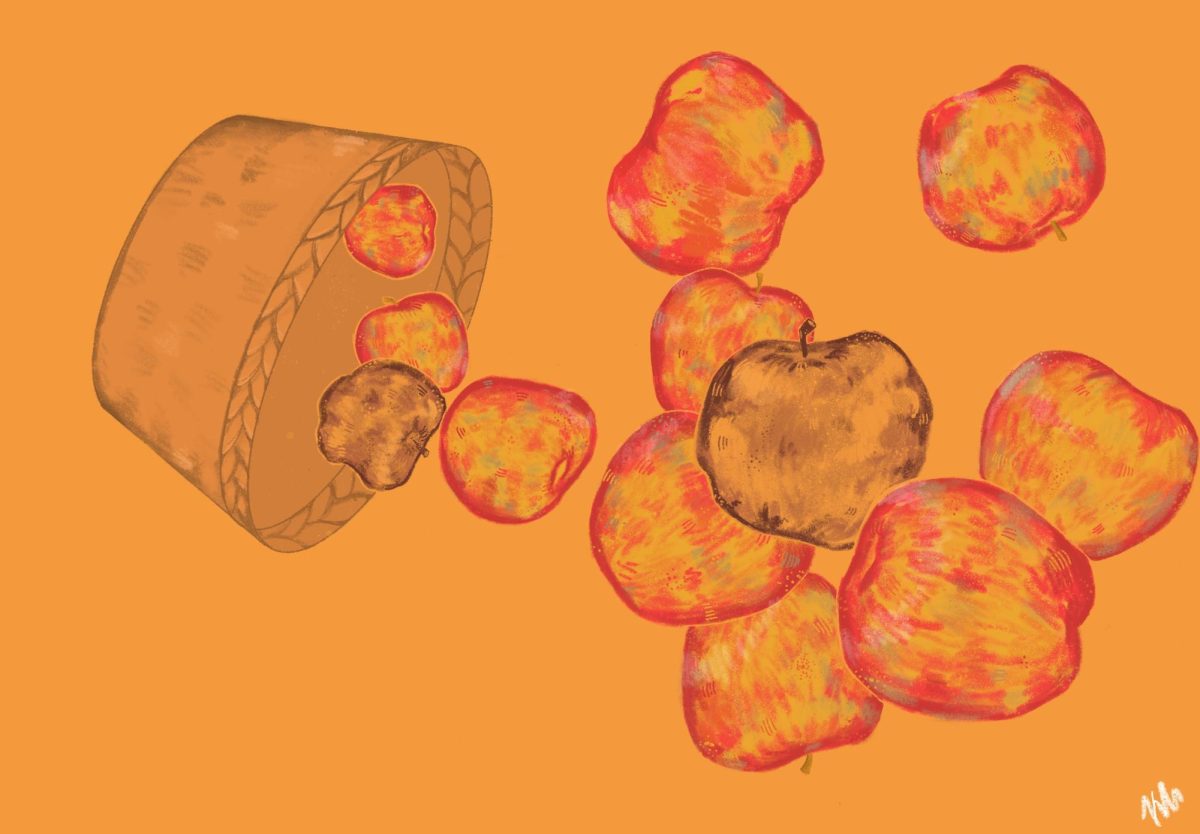 By Chris Nguyen
By Chris Nguyen
Features Editor
Though you will likely find me in a 2008 Radiohead tour t-shirt about every two weeks, I listen to my fair share of pop music on the radio. And besides the fact that melodies in songs have gone out the window (seriously, what is up with Ludacris’ “Get Low”?), I have been noticing another trend creeping up in music for a few years. It’s that odd sheen of vocals. It’s the unreal tones the voice takes. It’s auto-tune.
Of course, there’s the obvious dosage of auto-tune, which T-Pain has famously kidnapped, beaten, stabbed and killed to monetary success, but I am talking about the more “subtle” use of auto-tune, the tool that has helped sustain the careers of “singers” Rihanna, Britney Spears and, excuse me T-Swift fans, Taylor Swift.
The prevalent acceptance of auto-tune has been just yet another step toward this high ideal of perfectionism, to paraphrase Malcolm X totally out of context, by any means necessary.
Because looking at auto-tune, it is a tool meant to detour and sidestep the grit of the work to achieve pitch-perfection. Pick your pop starlet of choice and envision it: she goes to the studio, heads to the recording booth, sings a few bars as best she can and leaves. Then, comes the work of the sound engineers and producers to use their little friend auto-tune to smooth away all the harsh winkles of dud vocal notes. And there you have it: a pitch-perfect song.
It’s a process repeated in the music business in what has been called the loudness war in which producers fight to achieve the “best” in the sound of music by simply pushing all instruments, vocals to the forefront. It makes the music noticeable but like with auto-tune, the entire nuance is gone, all the little imperfections that give it character to make it stand-out.
And really, that is the sad price of perfection that most of us seem to be willing to pay. Having just been through the worst ride known to mankind as college admissions, I became opened to this need to do what it takes to gain the edge for that big envelope of acceptance. Go to test prep 24/7 to gain that extra 50 points for a 2400. Stick with a sport because you want continuity and the look of dedication rather than because you love it. We’ve been processed to accept nothing less than 100, if not 110, percent.
But it’s not this sense that trying your best is wrong, no, instead what auto-tune, the loudness war and college admissions all represent is seeking perfection without gaining the right experience. Firsthand, this past semester as I was pushing my GPA to its last stretch, I would do anything to get those 97’s whether that meant compromising my own morals and values. I picked up those GPA points but I was left unfulfilled because I hadn’t learned, hadn’t opened my mind.
There’s something to be said for that thing left unfilled but the hard work being put into it. Instead of being built to always his the mark, I have begin to take satisfactions in the mess-ups, the mistakes, I’ve been released from seeing the futile battle in perfection.
It’s the great irony that as the music business is reaching at the strings for making it sound as big, best and perfect as possible it has instead pushed itself to much worse territory, leaving the small nuances that give it breath, humanity.
So here’s hoping Taylor Swift lays off the auto-tune. Most will probably will not like what they hear, but it will be music to my ears.








